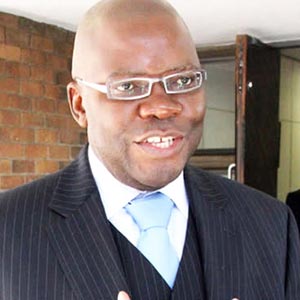
GOVERNMENT is set to bar directors of banking institutions and holding companies from taking up similar positions in more than two other companies, according to proposed amendments to the Banking Act.
Report by Ndamu Sandu
This will see at least 10 directors of both listed and unlisted firms relinquishing directorships in other companies, if they want to sit on the boards of a banking institution or a controlling company.
The current legislation stipulates that one is barred from appointment on the board of a bank and its holding company if he or she sits on the boards of more than seven other companies.
Clause 10 of the Banking Amendment Bill states that “people will be disqualified for appointment as directors of banking institutions and controlling companies if they are directors of two other companies, or if they or their relatives or partners have a shareholding that amounts to a significant interest in their institutions or companies; or if they have been convicted of money laundering or terrorist financing.”
The measures would affect at least nine directors who sit on the boards of banks, controlling companies and at least two other institutions.
Directors that could be affected if they are to sit on the boards of banks and controlling companies are Canaan Dube, Ngoni Kudenga, Anthony Mandiwanza, John Mushayavanhu, Bothwell Nyajeka, Chris Urombo Hokonya, James Matiza, Joseph Kanyekanye and Farai Mutamangira.
A corporate governance expert, Dube chairs Delta and is on the boards of Barclays and Edgars.
- Chamisa under fire over US$120K donation
- Mavhunga puts DeMbare into Chibuku quarterfinals
- Pension funds bet on Cabora Bassa oilfields
- Councils defy govt fire tender directive
Keep Reading
Kudenga is on the boards of ABC, Bindura and Hippo.
Mandiwanza chairs the Barclays board and sits on the boards of Dairibord (and all its subsidiaries), TSL and Chemco.
Mushayavanhu is in the FBC board by virtue of being CEO and also sits on the boards of General Beltings and Turnall.
Nyajeka chairs the ZB Financial Holdings (ZBFH), the parent company of ZB Bank.
He also sits on the boards of PG Industries and TA Holdings.
Hokonya is on the board of ZBFH, Afre and the National Social Security Authority (NSSA) which controls Capital Bank and has interests in ZBFH and FBC Holdings. Matiza is a board member of ZHL, Afre and NSSA (general ma-nager).
Mutamangira chairs the boards of Hwange and Allied Bank and also sits on the boards of ZBC and National Indigenisation and Economic Empowerment Board. Kanyekanye chairs the boards of Capital Bank and Rainbow Tourism Group and is also on the board of NSSA.
The amendments also empower CEOs of banking institutions and controlling companies to tell the registrar, “if they have information that has a bearing on the suitability of directors for continued appointment to their boards”.
Corporate governance weaknesses were at the core of bank closures since 2004, when more than 10 institutions were either placed under curatorship or closed for various ailments such as insider loans, which all turned out to be non-performing and siphoning of depositors’ funds through related party loans to the main shareholders and their associates “akin to a declaration of dividends by shareholders from depositors’ funds”.
BILL SEEKS TO ENHANCE COMMITTEES’ INDEPENDENCE
The bill seeks to amend section 40 of the Banking Act that disqualifies executive directors and employees from being appointed to the audit committees of banking institutions, “to enhance the independence of the committees”.
Clause 22 of the bill empowers audit committees, “the function of supervising internal auditors”.
Clause 23 of the bill will amend section 45 of the Banking Act, to extend RBZ’s supervisory functions to controlling companies as well as banking institutions.
Finance minister Tendai Biti is the champion of the reforms meant to place the banking sector in line with international trends.











